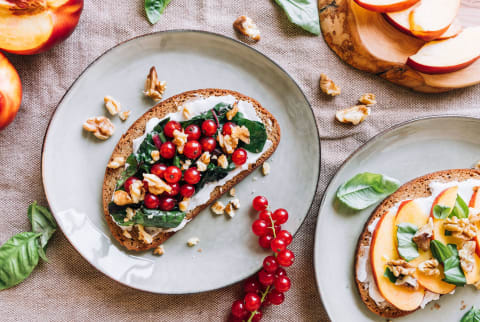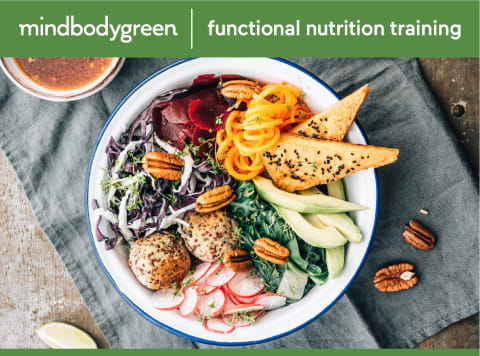Advertisement
Why The MIND Diet Resonates With This Plant-Centric RD + Her Go-To Topping


The past year has dealt an unexpected share of challenges and stress, to say the least. Amid this backdrop, it's often the little, positive actions that can make a big impact on our mental and physical health. mbg Collective member Jessica Cording, M.S., R.D., CDN, INHC, is a registered dietitian and health coach who specializes in the "little things."
Author of The Little Book of Game-Changers: 50 Healthy Habits for Managing Stress & Anxiety, Cording focuses on attainable nutrition and lifestyle strategies to improve energy, mood, and stress response. Her background in clinical nutrition (orthopedic, neurology, and oncology), corporate wellness, and private practice brings diverse expertise to the world of nutrition.
For a dietitian who's already infusing bio-individual nutrition approaches into her practice, this year's National Nutrition Month emphasis on personalized nutrition is right up Cording's alley. Eager to get her insights, I caught up with Cording to learn more about her personal approach to healthy eating.
What does this year's National Nutrition theme "Personalize Your Plate" mean to you?
I love that "Personalize Your Plate" is this year's theme because I think it shines a needed spotlight on the importance of cultural diversity in nutrition recommendations and aligns with my belief in bio-individuality—that we are all different and have unique nutrition needs. I work with patients from so many backgrounds, and I love having discussions about their favorite traditional foods and how they can be a part of an overall healthy diet pattern to support their specific health goals.
Do you follow a specific dietary pattern?
I am not a big fan of labels, but I do eat in a way to support my own health goals. Because cancer, heart disease, and Alzheimer's disease are all part of my family history, I keep an eye toward risk reduction by making sure to eat a plant-forward diet with plenty of vegetables, berries, healthy fats, legumes, and fish, with minimal added sugar, red meat, and processed foods.
The MIND diet, which is a combination of the Mediterranean and DASH diets, resonates with me—except for the wine part. After age 30, my body was just, like, "nope." More than a few sips gives me a headache and messes with my sleep.
What's your go-to nutrient-dense meal right now (breakfast, lunch, or dinner)?
My typical weekday lunch that I bring to work is a salad with dark leafy greens, some kind of plant protein (beans, tempeh, tofu, etc.), and roasted veggies. I usually use hummus or guacamole instead of dressing—it travels a lot better and is a delicious way to add healthy fat to the meal. I almost always have a piece of dark chocolate too.
Is there one "MVP" healthy food or meal addition you're personally loving right now?
I'll put tahini on practically anything, sweet or savory. I go through phases where I forget about it, but I've been enjoying it recently as one of my go-to ways to add healthy fat to a meal. My family loves it in miso-tahini dressing that we eat in salads or as a garnish for fish and roasted veggies.
Check out Jessica's podcast Drama-Free Healthy Living for more nutrition and health insights. Connect with Jess at JessicaCordingNutrition.com and on social @JessCording.
